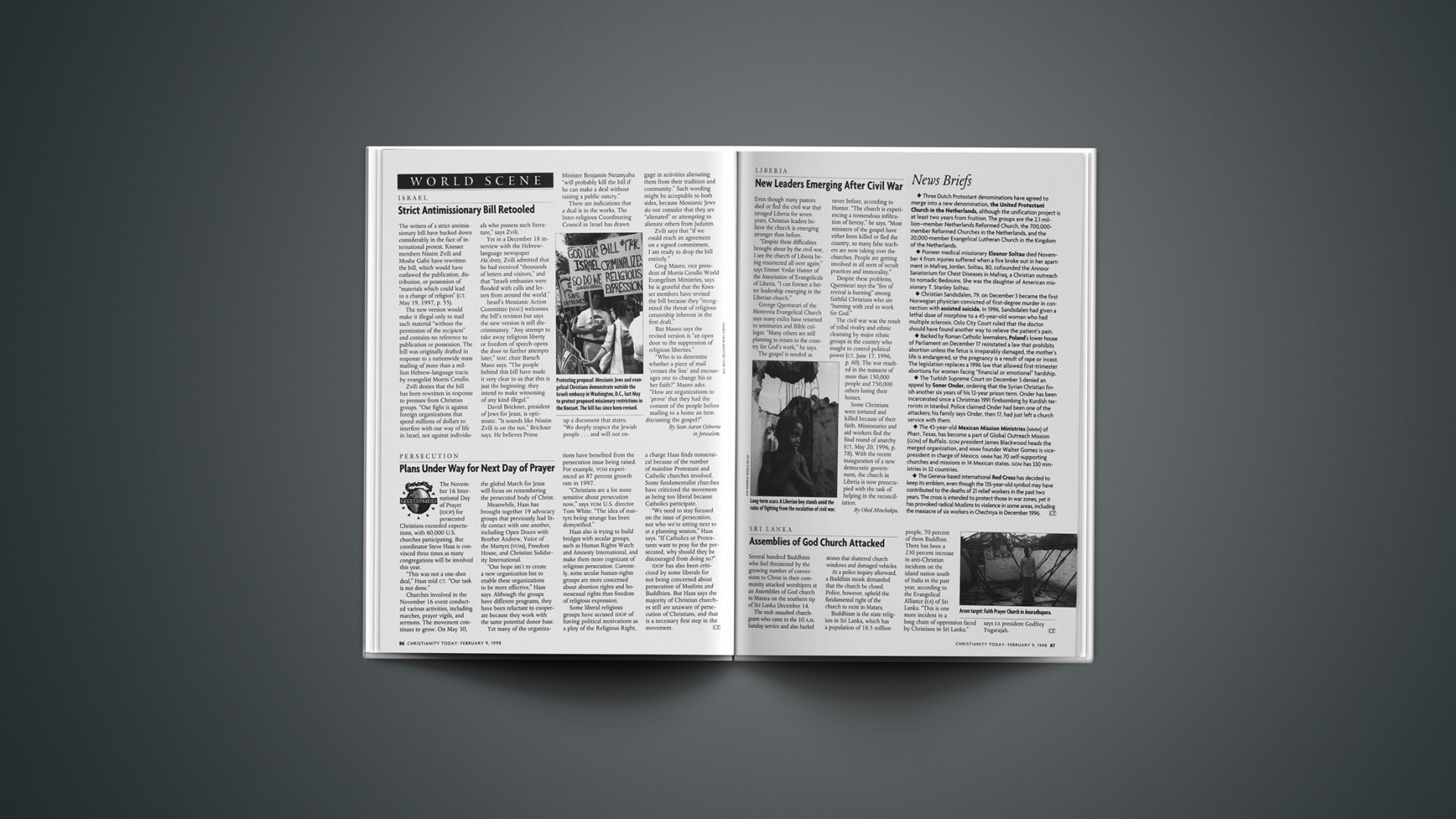The writers of a strict antimissionary bill have backed down considerably in the face of international protest. Knesset members Nissim Zvili and Moshe Gafni have rewritten the bill, which would have outlawed the publication, distribution, or possession of “materials which could lead to a change of religion” (CT, May 19, 1997, p. 55).
The new version would make it illegal only to mail such material “without the permission of the recipient” and contains no reference to publication or possession. The bill was originally drafted in response to a nationwide mass mailing of more than a million Hebrew-language tracts by evangelist Morris Cerullo.
Zvili denies that the bill has been rewritten in response to pressure from Christian groups. “Our fight is against foreign organizations that spend millions of dollars to interfere with our way of life in Israel, not against individuals who possess such literature,” says Zvili.
Yet in a December 18 interview with the Hebrew-language newspaper Ha’Aretz, Zvili admitted that he had received “thousands of letters and visitors,” and that “Israeli embassies were flooded with calls and letters from around the world.”
Israel’s Messianic Action Committee (MAC) welcomes the bill’s revision but says the new version is still discriminatory. “Any attempt to take away religious liberty or freedom of speech opens the door to further attempts later,” MAC chair Baruch Maoz says. “The people behind this bill have made it very clear to us that this is just the beginning: they intend to make witnessing of any kind illegal.”
David Brickner, president of Jews for Jesus, is optimistic. “It sounds like Nissim Zvili is on the run,” Brickner says. He believes Prime Minister Benjamin Netanyahu “will probably kill the bill if he can make a deal without raising a public outcry.”
There are indications that a deal is in the works. The Inter-religious Coordinating Council in Israel has drawn up a document that states: “We deeply respect the Jewish people … and will not engage in activities alienating them from their tradition and community.” Such wording might be acceptable to both sides, because Messianic Jews do not consider that they are “alienated” or attempting to alienate others from Judaism.
Zvili says that “if we could reach an agreement on a signed commitment, I am ready to drop the bill entirely.”
Greg Mauro, vice president of Morris Cerullo World Evangelism Ministries, says he is grateful that the Knesset members have revised the bill because they “recognized the threat of religious censorship inherent in the first draft.”
But Mauro says the revised version is “an open door to the suppression of religious liberties.”
“Who is to determine whether a piece of mail ‘crosses the line’ and encourages one to change his or her faith?” Mauro asks. “How are organizations to ‘prove’ that they had the consent of the people before mailing to a home an item discussing the gospel?”
Copyright © 1998 Christianity Today. Click for reprint information.










